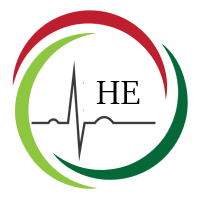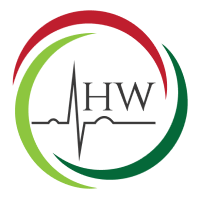In the wake of COVID-19, uncertainty reigns. Who is considered at higher risk and why?
While we know that an individual’s personal hygiene and extent of social distancing will contribute to the likelihood of contracting the virus, those infected will experience variable degrees of severity. Researchers now know that nutrient status plays a role in this. Age-related micronutrient deficiencies are common and can cause more severe infections in the elderly population due to a weakened immune system. However, deficiencies are present in people of all ages. Several studies have reviewed the essential roles of micro and trace nutrients in immunocompetence and their contributions to the body’s ability to fight viral infections1.
Key Findings for Immune System Building:
Vitamin A
- Deficiency can lead to impaired immune function and increased, severe viral infections1
- Good sources include green leafy vegetables (eg: spinach, kale, broccoli), sweet potatoes, and carrots2
Vitamin C
- Provides support to the immune system1
- Recommended daily amount for adults is 75 mg for women and 90 mg for men3
- Good sources include citrus fruits, tomatoes, potatoes, brussel sprouts, cauliflower, broccoli, strawberries, cabbage, and spinach3
Vitamin D
- Provides protection and reduced risk of acute respiratory infections, viral infections, and inflammation-related pneumonia when taken before the onset of infection1
- Recommended daily amount for adults 18 and older is 600-800 IU4
- Major source is sunlight (get plenty of it, but use UV A&B protection!)4
- Other sources include fatty fish like salmon, cod liver oil, and fortified cow’s milk4
Zinc
- Deficiency increases susceptibility to many infectious diseases, including viral infections5
- One of the most prevalent nutrient deficiencies globally6
- Recommended daily amount for adults is 8 mg for women and 11 mg for men6
- Good sources of zinc include nuts (eg: peanuts, cashews, almonds), chickpeas, and lentils6
Selenium
- Has been shown to decrease viral loads and increase antiviral activity in the body5
- Recommended daily amount for adults is 55 mcg. Natural intake is preferred over supplementation due to the risk of toxicity with doses that are too high6
- Good sources of selenium include seafood6
DISCLAIMER: Recommended daily amounts may vary based on age, gender, medical conditions, and especially in pregnancy. Contact your healthcare provider for specific recommendations.
Who doesn’t love a colorful plate?!
Creating meals for yourself and your family that contain delicious fruits and vegetables will not only help you to get an adequate intake of these essential nutrients for your immune system, but it will also help you to elevate your health and fight chronic conditions like high blood pressure and diabetes which, you guessed it, contribute to worsening infections! Studies show that these metabolic conditions are present in a high number of patients whose illnesses have severely progressed. Our individual health status and factors contribute significantly not only to the determination of contracting COVID-19 but also the outcomes associated with the infection1.
References
- Gasmi, S. Noor, T. Tippairote, et al. Individual risk management strategy and potential therapeutic options for the COVID-19 pandemic. Clinical Immunology 2019, https://doi.org/10.1016/j.clim.2020.108409
- Pazirandeh, MD., Sassan and Burns, MD., David L. “Overview of Vitamin A.” David Seres, MD., Kathleen J Motil, MD., PhD. and Alison G. Hoppin, MD.,Version 41.0, Updated Jan 29, 2020. UpToDate, www-uptodate-com.ezproxylocal.library.nova.edu/contents/overview-of-vitamin-a?search=vit%20A%20intake&source=search_result&selectedTitle=1~150&usage_type=default&display_rank=1#H3
- Pazirandeh, MD., Sassan and Burns, MD., David L. “Overview of water-soluble vitamins” David Seres, MD. and Alison G. Hoppin, MD., Version 40.0, Updated Jan 29, 2020. UpToDate, www-uptodate-com.ezproxylocal.library.nova.edu/contents/overview-of-water-soluble-vitamins?search=vit%20c%20intake&source=search_result&selectedTitle=1~150&usage_type=default&display_rank=1#H54
- Drezner, MD., Marc K. “Patient Education: Vitamin D Deficiency (Beyond the Basics).” Clifford J Rosen, MD. and Jean E Mulder, MD., Version 21.0, Updated Apr 11, 2019. UpToDate, www-uptodate-com.ezproxylocal.library.nova.edu/contents/vitamin-d-deficiency-beyond-the-basics?search=vitamin%20d%20intake&topicRef=2033&source=see_link
- Jayawardena, R. et. al. Enhancing immunity in viral infections, with special emphasis on COVID-19: A review. Diabetes and Metabolic Syndrome: Clinical Research & Reviews 2020: 367-382
- Pazirandeh, MD., Sassan al. “Overview of dietary trace elements.” David Seres, MD. and Alison G. Hoppin, MD., Version 37.0, Updated March 20, 2020. UpToDate, www-uptodate-com.ezproxylocal.library.nova.edu/contents/overview-of-dietary-trace-elements?search=zinc%20intake&source=search_result&selectedTitle=2~39&usage_type=default&display_rank=2#H58



